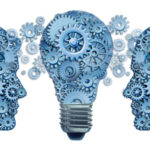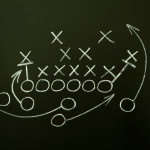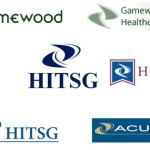Recently we posted a link to an intriguing blog post in our News Roundup. Dr. Brian Secemsky is a few weeks into his internship out on the West Coast. The son of a physician, Brian writes an interesting post comparing certain aspects of his medical training experience to date with that of his father. The question he raises: Is the widespread availability of medical information made possible by the Internet, in concert with various and sundry applications, helping or hurting the medical education process?
This query struck a chord of familiarity with me. My kids were born in the late 80’s and early 90’s and as with most individuals of their generation they are far more “tech savvy” than their parents. One of our children is in the Midwest and starting his 4th year of medical school, effectively one year behind Brian in the medical-training timeline.
He, too, has rolled his eyes as I recount stories of trudging through knee-deep snow to get to the hospital during medical school and the residency that followed. Admittedly, the fact that I trained in Dallas, Texas, makes spinning that yarn a bit problematic, but the exaggeration is typically fueled by a comparison between work-hour expectations then and now for medical trainees, but I digress. He would echo the sentiment that information technology has been a close companion over the past several years.
Of course the current generation of medical trainees is not the only group of medical professionals utilizing technology. Who has not “Googled” an unusual disease looking for an online resource instead of trekking over to the medical library as we did years ago? Who among us has not used Epocrates? And of course there is UpToDate. The brainchild of a nephrologist no less, UpToDate is effectively replacing medical textbooks, which by their nature are OutOfDate the minute they leave the press.
The Holy Grail in this arena would be to incorporate this vast array of medical knowledge within the workflow of the patient encounter, most appropriately within the electronic medical record. While it has not yet arrived, the IBM Watson project is taking a step in this direction. Combining sophisticated tools such as Natural Language Processing with massive processing power, Watson is leveraging experience garnered as a Jeopardy champion and moving closer to becoming a reliable medical assistant.
The difference, I think, is not that one generation uses technology and the other does not. The difference is the timing in which these tools became available along the continuum of professional growth. During the course of that continuum we acquire something I first read about in medical school: clinical judgment.
Clinical judgment, as Feinstein and many others have described, is acquired with experience over time. It is a difficult concept to describe with words. My wife, a general internist, describes it as an uneasiness you experience when you know something is not quite right, but at that moment you can’t quite put your finger on it. Perhaps you have felt it when making rounds in the dialysis unit or seeing someone in the hospital and transferring them to the ICU without a clear-cut diagnosis or reason. Of course clinical judgment manifests itself in many other ways as well.
Acquiring clinical judgment does not happen overnight, and in my experience it’s not something you leave your residency or fellowship with. If there is one thing I would caution our younger colleagues about, it would be to not allow the widespread access to technology to interfere with the development of clinical judgment. This, of course, is easier said than done.
It has been more than 20 years since I last made that uphill trek through the snowy streets of Dallas; as I recall, it was uphill both ways. I am convinced the widespread, electronic availability of medical information would have been a welcome addition to the early days of my medical education. Watson and other avenues of artificial intelligence will continue to mature over the next several years and at some point they too will become valuable tools for clinicians. The practice of medicine, however, will continue to require clinical judgment. Hopefully that skill will not be more difficult to acquire in this context.




Leave a Reply